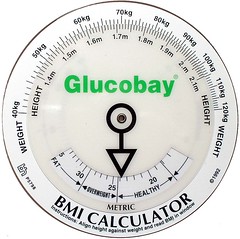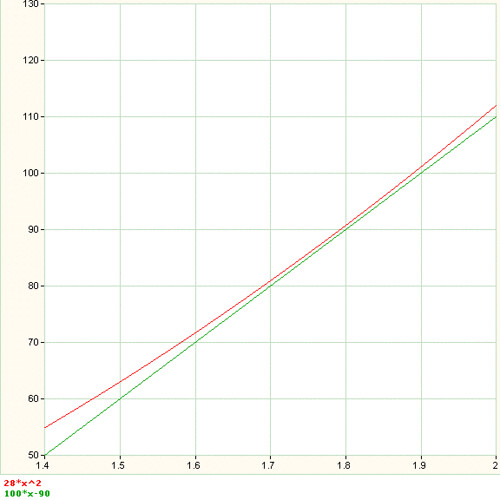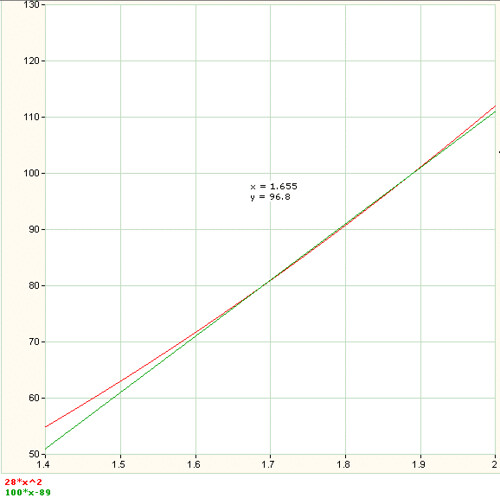Confusing Words
There are some words that I find it hard to differentiate.
- Prosecute vs. Persecute.
- Proprietor vs. Perpetrator
- Farther vs. Further
Note: This should be my last post before my Tasmania trip.
Framing fleeting moments and sharing humble perspectives since 2003.
There are some words that I find it hard to differentiate.
Posted by
changyang1230
at
11:49 AM
6
comments
![]()
Have we really sent an astronaut to space? Have PM, DPM and the astronaut really talked over the phone?If you are an invited reader, read it here.
Posted by
changyang1230
at
12:37 AM
0
comments
![]()
Labels: Frank2c
I have just added a new feature in this blog called "Feeling Lucky". You can see it in the sidebar on your left. Just click on "Read a Random Post in This Blog", wait for a couple of second, and it will automagically bring you to a random post in my blog! Good for random browsing. :P
If you are interested, you can install this feature in your blog with instructions from this web page.
Posted by
changyang1230
at
9:35 AM
1 comments
![]()
Labels: Blogging

Bay of Fire

Sunset at Launceston

Cradle Mountain National Park

A boat shed at Cradle Mountain.

A Sleeping kangaroo.
If someone throws you in an air-tight room together with a few other people, as the oxygen runs out, do you blame the other people for breathing instead of the person who threw you in the first place?If you are an invited reader, read it here.
Posted by
changyang1230
at
11:31 AM
1 comments
![]()
Labels: Frank2c
 Have you ever been crushed by a "ghost" when you are asleep? Is 鬼压床 a familiar experience for you?
Have you ever been crushed by a "ghost" when you are asleep? Is 鬼压床 a familiar experience for you?
I thought I was the only person who has this sort of experience, so I was surprised when I read about someone else being possessed by a ghost.
I actually have a similar experience sometimes. What happens is, sometimes when I am half-asleep or half-awake, I would have a feeling of the whole body being pressed by a heavy object, and I can’t move my muscle, and hard as I wish, I can’t wake myself up. I think this is what the Chinese traditionally refer to as “ghost press bed”, and probably refers to the sleep paralysis in medical terms.
The event is usually followed by a sensation of the whole bed tilting backwards like the tilt table test. Again, I can’t resist it with my conscious will. Sometimes I would chant “Amitabha” in my mind (even though I am not a devout Buddhist) and the sensation would fade away. But I guess it would go away even if I don’t do anything anyway.
Just sharing my personal experience here. Make of it as you would.
Note: This is adapted from my comment in Malaysian Medical Resource.
Image Credit: Good dreams from sxc.hu.
This post is a continuation of an earlier post.
Me: So would you mind to participate in it?I am surprised at her lack of anger or disappointment, given that she thought she was going to be called in for surgery earlier when I was calling them.
Maria: Yeah sure! Since I won't be doing anything else anyway. How long do you think I am gonna wait for?
Me: A couple of hours or so... I can't be sure because the operation time is quite variable. I am sorry about that.
Maria: It's alright.
 She was more than a bit upset.
She was more than a bit upset.All fresh Malaysian medical graduates have to work an additional year of housemanship!
Just fresh out of the news:
Move to make sure all doctors have required skillsYou can read an alternative perspective in the Malaysian Medical Resource.
By AUDREY EDWARDS
PUTRAJAYA: Newly-qualified doctors will have to undergo two years' compulsory housemanship from next year.
Currently, they only have to do a year of housemanship.
Health Minister Datuk Seri Dr Chua Soi Lek, who announced the Cabinet decision yesterday, said the move was considered important to increase the knowledge, skills and experience of graduate medical officers.
“This will improve the quality of services and healthcare standards,” he said.
A rotation system of four months in six departments will be implemented. With the newest inclusion being the accident and emergency department, the rest are medical, paediatric, general surgery, orthopaedic, obstetrics and gynaecology.
“We have observed that in the past few years, about three to five per cent of graduate medical officers do not get full registration because they have weaknesses in knowledge or skills,” he told reporters before chairing his ministry’s post-Cabinet meeting.
“We cannot let this continue. We hope the move is seen as a positive one by future graduates and we are confident the rakyat (people) will support us.”
After the two-year housemanship, the doctors would have to serve their three years' compulsory service with the Government or its agencies, he said.
Dr Chua said the ministry would apply to the Government to place them under the U43 grade upon completing the two years' housemanship compared to the current U41. The U43 pay scale is RM500 more than U41.
He said the doctors would be able to pursue their specialist courses or Master’s after serving two years' compulsory service compared to the current situation whereby they can only apply to further their studies after three years.
About 1,200 local medical students graduate annually.
Dr Chua also announced the Cabinet’s decision to disallow the future setting up of private cord blood banks because while it was a new service with huge potential to treat specific diseases, there were still ethical issues to be scrutinised.
He said the existing centres would have to apply for a licence from the ministry within the next two months and would be registered under the Private Healthcare Facilities and Services Act 1998.
Posted by
changyang1230
at
11:56 AM
4
comments
![]()
Heng Liang told me that their house in Sydney got broken into while they are having dinner outside. He and his housemates (Cheok Quen and Raymond) lost their laptops, cameras, money, and passport.
How despicable and hideous.
[Post truncated]
Posted by
changyang1230
at
8:54 AM
2
comments
![]()
Labels: Dedication
It's been estimated that there are 200,000 Mat Rempit in Malaysia. That's almost one percent of the country's population

Posted by
changyang1230
at
8:33 PM
0
comments
![]()
I was reading on Global Warming when I noticed the classical Chinese version of the article (Yes they do have classical Chinese version of Wikipedia!).
全球暖化者,天地日暖也。蓋百年以來,其勢日明,其害日顯,此固由人為也。工業日進,污染日甚,溫室氣體日濃,熱無以去,遂俳佪於天地間。萬物因而易,異象因而生。海面日漲、氣候突變、水旱交侵,致使農業廢失、物種亡絕、病蟲日增。萬民見害,苦之久矣。諸國遂盟,訂《京都議定書》,力減溫室氣體之釋,以緩此變。惟其成功與否,尚未可知。这段落读起来好像是古代历史,不像是现代环境危机哦!
Posted by
changyang1230
at
9:24 PM
2
comments
![]()
我好久没写中文了,都不懂还写得出通顺的文章吗。
这些年来,平时阅读的医学论文啦,网站啦,博客啦,全都是英文的;所以现在除了偶尔读些 星洲日报的评论,一些朋友的博客之外,中文字都没看到几个。记得那天荣进告诉我说,他比较习惯阅读中文报,因为读起来可以一目十行,理解比较容易;而阅读英语文章时,感觉上比较吃力一点。说来惭愧,现在我倒是相反,中文读起来已经比英文慢了。
想想,我这该得好好保护我的母语,别让它生锈了!
Translation:
I have not written in Chinese for a long time. I don't know even know whether I could still write a fluid Chinese essay.
In recent years, things that I usually read like medical journals, websites, blogs, are almost written predominantly in English. Nowadays, apart from an occasional read of columns in SinChew Jit Poh, as well as some friends' blogs, I hardly have any exposure to Chinese characters. The other day Yong Chin told me that he is more used to reading Chinese papers, as he can read it faster and comprehend easier. When he reads English article, he says, it is quite strenuous. Embarassingly, it's the opposite situation for me at the moment, as I now read Chinese slower than English. [To think that I was rather confident with my Chinese when I was in Malaysia. Sigh.]
Well, I better preserve my mother tongue well, let it not deteriorate any further in the future!
Posted by
changyang1230
at
11:53 AM
4
comments
![]()
I have a new favourite quote. It's from Richard Feynman, the maverick physicist.
There are 10^11 stars in the galaxy. That used to be a huge number. But it's only a hundred billion. It's less than the [US] national deficit! We used to call them astronomical numbers. Now we should call them economical numbers.I have been going out a lot recently, so this is just a filler for the blog while I am recovering from fatigue. :)
Posted by
changyang1230
at
6:30 AM
3
comments
![]()
Labels: Economics, Humour, Mathematics, Science
In my research, one of the criteria for the patients I recruit is that their Body Mass Index (BMI) must be more than 28. Body Mass Index is an indicator for one's weight status while considered together with their height. It's calculated with the following formula:
 Today, while playing around with a BMI calculator (pictured on the right), I noticed an interesting pattern. After some twiddling and calculation, I figured out that if I take one's height in centimetre, subtract it by about 90, I would get the approximate weight of the person if their BMI is 28!
Today, while playing around with a BMI calculator (pictured on the right), I noticed an interesting pattern. After some twiddling and calculation, I figured out that if I take one's height in centimetre, subtract it by about 90, I would get the approximate weight of the person if their BMI is 28!

Posted by
changyang1230
at
7:13 AM
3
comments
![]()
Labels: Education, Mathematics, Medicine, Melbourne
 Wikipedia is an online encyclopedia where everyone can edit almost every single article in it. Over the years, it's been a rare gem of the internet. As a not-for-profit website without any commercial affiliation, it's become a surprisingly successful internet website. It has achieved tremendous popularity, consistently ranked in the top 10 result of most Google searches, and most amazingly, continued to prosper although it's funded only through annual fundraising campaigns.
Wikipedia is an online encyclopedia where everyone can edit almost every single article in it. Over the years, it's been a rare gem of the internet. As a not-for-profit website without any commercial affiliation, it's become a surprisingly successful internet website. It has achieved tremendous popularity, consistently ranked in the top 10 result of most Google searches, and most amazingly, continued to prosper although it's funded only through annual fundraising campaigns.
As far as its popularity goes, Wikipedia has its own share of detractors. Due to its editable nature, Wikipedia's accuracy has long been a subject of debate. Some people compared it to the accuracy of the good ol' trusted Encyclopaedia Britannica, and found that the accuracy of both encyclopedias are rather comparable. However, some people rejected this controversial finding, citing the study methods as being inaccurate and biased towards Wikipedia. On the other hand, many people have been critical of Wikipedia's accuracy. For example, university lecturers routinely (and rightly) reject Wikipedia as a reference in any academic work. And people frown whenever someone quote a piece of information from Wikipedia.
While I agree with and recommend a healthy dose of skepticism towards the accuracy of Wikipedia, I hate it when people go too far in discrediting it. I especially dislike it when this happens:
Friend: Hey do you know who was the person involved in <an event>?On another occasion, when I was having a discussion about an issue online, I recommended people to read its Wikipedia article for an overview, and someone replied,
Me: Eerm, if I'm not mistaken, it's <someone's name>.
Me: *Go to Wikipedia and look it up*
Me: Yeah, according to Wikipedia it's <someone's name>.
Friend: Hey but it's Wikipedia! I don't trust Wikipedia. I never visit Wikipedia for any information.
Why do you always recommend Wikipedia? Do you know that we are not supposed to trust it? For your information, if you cite Wikipedia in university, they will mark you down for that.I personally think that those detractors have gone too far. When I recommend Wikipedia as a starting point for reading in an issue, I have never meant it to be the most authoritative and accurate source in the world. Nobody ever claimed it to be absolutely accurate and unbiased, and the encyclopedia itself admitted the fact too. It also openly advises the users that the information in the articles are not to be cited in any academic work, because of its nature.
Why would you donate to Wikipedia, seeing that it's actually inaccurate and is prone to vandalism?I feel that those people do not get the spirit of collaboration and free knowledge. Wikipedia might not be the most authoritative resource out there, but in terms of the depth and the width of knowledge within, Wikipedia is second to none.
A new post in my private blog!
If you have no idea what this is about, read more about my semi-private blog here.
A new post in my private blog!
If you have no idea what this is about, read more about my semi-private blog here.
In a kingdom of far, far away, there is a classroom with a teacher and some students. The teacher is a fierce, biased dictator who bullies the students everyday.
Every few years there is an election where the students get to choose their teacher for the next few years. One day, some of the students feel that they have had enough of unfairness. They feel that the teacher has been unfair in the election. The teacher doesn't allow much open discussion about the election, he gives different weight to votes from different students (votes from his supporters have more weight), and sometimes the votes come from obscure sources. So the student decided to walk peacefully to the Principal's office to hand in a request for a better election.
The teacher caught the "delinquent" students in their paths. He took off the students' pants, let his dogs out to chase them, sprayed water at them with the garden hose, and blamed the wet floor on the students. Then the teacher made an announcement in the classroom:
"Sending request to Principal for better election is not part of our school culture. Those students must be deterred and punished at once, so that the peaceful learning environment in our school is not polluted by the evil forces. Remember, requests always end in VIOLENCE."The not-so-delinquent students cheered and clapped and nodded at the teacher's remark. In the next election, the same teacher get re-elected by the not-so-delinquent students.
Posted by
changyang1230
at
10:37 PM
7
comments
![]()
This post is a continuation of a previous post.
We often hear things like these:
The Earth is such a perfect place for us to live in. Do you know that if the Earth is 1 percent further from the Sun, or 1 percent closer to the Sun, then it would be too hot for human to live in? If the Sun is 1% hotter than it is, no human would have survived! Now, what is the probability of the Earth being located at such a perfect position? Isn't it amazing?
This universe is so fine-tuned to human beings. Do you know that if the gravitational constant was 1% different from its current value, the galaxy, the solar system and the Earth wouldn't have existed, and we wouldn't have been here? Also, the formula E=mc^2, if it isn't true, the Sun could never have produced enough power to support life!! Now, what's the probability of this universe having such a perfect condition?Those paragraphs are usually followed by some arguments which state that since the "perfect" condition is so "perfect", and that since there must have been such an infinitesimal probability of having such perfect conditions, then it couldn't have existed by itself and hence this world must have been designed by a creator.
Posted by
changyang1230
at
11:25 AM
12
comments
![]()
Labels: Education, Evolution, Logic, Mathematics, Rambling, Religion
This post is a continuation of a previous post.
So I was talking about how minute the chance was for me to meet Wee Loon and Violet, and how amazing it was for Richard Feynman to have seen one particular car plate. Now let me ask you a question: "Some particular thing" had happened, and the probability of that particular thing happening, if you were to calculate it beforehand, is 1 over 8.1 × 10^67, or in decimal places, 0.000 000 000 000 000 000 000 000 000 000 000 000 000 000 000 000 000 000 000 000 000 000 012.
Would you believe that "that particular thing" has just happened? Give it a second of thought.
Most of us would be inclined to think that, hey, that's such a ridiculously small probability, if that could have happened, I could as well be struck dead by an asteroid in the next minute. And if we compare it to the chance of winning top price in TOTO, we can't help but to shake our belief further in the occurrence of "that particular thing" - most of us can't even win the top price in TOTO (a chance of 1/10000), now what about that zero point zero zero zero blah blah blah probability?
The problem is, that zero point zero zero zero blah blah blah thing has just happened in front of me.
What happened was, I took out a deck of 52 playing cards, shuffled it a few times, and observed the order. It was five of heart, nine of diamond, queen of diamond, four of spade, ... , and so on. The chance of me getting that particular order, would have been 1 over 52!, which was the minute probability I mentioned in the beginning.
As you come to this point, you may start to wonder, if something with a probability of zero point zero zero blah blah blah would still happen, then what do we trust probability for? What's the point of calculating probability at all?
Some of you may have noticed that I have been calculating all the probabilities in hindsight - I calculated the chance of meeting Wee Loon and Violet after meeting them; Richard Feynman expressed his amazement at seeing a car plate after seeing a car plate; and I told you the probability of a particular order of playing cards after shuffling it and seeing the result. And if you have already suspected about it, you are in the right - this is the fundamental problem with the abuse of probability, as I have been demonstrating blatantly in the three examples.
Let's look at the example of Wee Loon and Violet. I calculated my chance of going to Safeway supermarket, their chance of going to Safeway, my chance of going at that particular hour, and their chance of going at that particular hour. If you have noticed, the probability that I ended up with is the probability of "Chang Yang meets Wee Loon and Violet at a particular time on a particular day in Safeway". Or in other words, if you simply think, "hmmmm, what is the probability of Chang Yang seeing WL and Violet at around 5pm in Safeway today?", then 1/15000 would be the correct answer, assuming that the probabilities in the calculation are correct.
However, when I did the calculation earlier, I have been doing it in hindsight. When I calculated the probability of seeing WL and Violet in Safeway, in my calculation I included my chance of going to Safeway on that particular day and in that particular hour although I was already in Safeway to begin with. That was ridiculous, because you don't go about analysing "what is the probability of myself reading Chang Yang's blog right now" when you are doing it at this very moment. So in the case of my "random encounter with WL and Violet", the chance of my going to Safeway would have been redundant. So the next time when I am in Safeway, if you go about asking me "Hey, what do you think is the chance of seeing WL and Violet here right now?", I would redo the calculation as follows: 1 / {(chance of them coming to Safeway today) * (chance of them coming at this hour)}. And that would render the chance higher than 1/15000.
For the case of Richard Feynman seeing a car plate, it's another case of "hey what's the chance of myself reading Chang Yang's blog right now" kind of thing. You don't go about asking probability of things that have happened - it doesn't mean much at all.
For example, I might as well ask, "What is the chance of Chang Yang typing a post about probability in Melbourne, at 11.30am on 11 November 2007, using Mozilla Firefox 2.0.0.9 on Windows XP, on an IBM laptop while munching on Smith Chip with barbeque flavour?". And, as silly as I could go, I would go on and be amazed, "See, such an unlikely thing has happened!"
You don't even need a calculator to see where this would lead us to.
For me to be doing the combo above, I need to be in Melbourne, I need to be using IBM laptop, I need to be having Smith Chip with me. Furthermore, I obviously need to be born to my parents, my parents need to be born to my grandparents, my grandparents need to be born to my great grandparents, and so on. And they all need to be born with the exact genetic make-up, for if they are not what they really are, then my parents wouldn't be the same people as I know them, and this Chang Yang might not have been the Chang Yang that you know. In all fairness Chang Yang could have been a Mat Rempit who has just broken his neck yesterday night from a midnight sprint.
Now we all could see that analysing the probability of things post-hoc (in hindsight) is usually meaningless. Everything that has happened had an infinitesimal probability, but that doesn't mean that it's a wonder that they happened, nor does that lend any support to skeptics who do not believe in the occurrence of the thing.
You might think that all these rambling are purely academic discussions, and that it doesn't have much to do with real life at all. You might think that for people who misuse or abuse the probability, the worst that could happen is that they underestimate their chance of meeting someone in Safeway. However, probability is abused more often and more seriously than we realize, and I shall elaborate on that in the last part of this rambling later.
[To be continued...]
[11 Nov: Continued here]
Posted by
changyang1230
at
7:49 AM
2
comments
![]()
Labels: Education, Evolution, Logic, Mathematics, Rambling, Religion
Probability, also known as chance or odds, is simply the ratio of one thing happening divided by all the other possible scenarios for a particular incident. For example, if there are two boxes, one of which contains a surprise, the probability of me opening a box which contains a surprise would be one out of two. Simple and straightforward.
As someone with an undying interest in mathematics, I am disheartened by the constant abuse of the simple concept of probability in various areas. It is thrown around up, down, left and right by both people who know maths and people who thought they know maths.
Let's begin with a simple example.
One day, at about 6pm, I walked down to the local Safeway supermarket and met Wee Loon and Violet. I was surprised to see them in Safeway, as I had never bumped into them before. As I saw him, I started thinking, "Wow, that's a coincidence! What in the world is the probability of me bumping into Wee Loon and Violet in Safeway today?"
In order to bump into Wee Loon and Violet in Safeway, obviously, first I have to go to the Safeway supermarket. Since I don't go to Safeway often, I reckon that would be a probability of, say, one in ten of me going to Safeway in a particular day. But, Wee Loon and Violet don't go to Safeway that often too since they are busy with studies. So, say, for that particular day, the chance of them going to Safeway is one in fifteen.
So the chance of me going to Safeway on the same day with them is one in 150.
But hey, that's only the chance of us going to Safeway for today!! I could have gone in at 4pm and they gone in at 5pm, and we could still miss each other! So I have to take the time into consideration. So what is the probability of myself going to Safeway at 6pm? Probably one out of twenty. And what is Wee Loon and Violet's chance of being in Safeway at 6pm too? Probably one out of five.
So if you do the calculation, the chance of me bumping into Wee Loon and Violet in Safeway at 6pm that day was about... 1/ (150 x 20 x 5) = 1 in 15,000!! Just imagine the coincidence! 1 in 15,000, that's even less than the chance of getting the top number in TOTO!
Something must be wrong here. But what? I have already been under-estimating the probabilities above, so the probability could have been lower.
At this point, we might look at another example by the maverick physicist, Richard Feynman:
“You know, the most amazing thing happened to me tonight. I was coming here, on the way to the lecture, and I came in through the parking lot. And you won’t believe what happened. I saw a car with the license plate ARW 357. Can you imagine? Of all the millions of license plates in the state, what was the chance that I would see that particular one tonight? Amazing!”I hope that at this point you have realized the flaw of both mine and Richard Feynman's arguments. Mathematically both the examples above were almost flawless, I followed through the various probability of the multiple conditions, and arrived at the final answer with standard mathematical methods. Mr. Feynman's mathematics was impeccable too. There indeed were millions of license plates in the state, and he indeed only saw that particular fated number.
Posted by
changyang1230
at
8:46 AM
8
comments
![]()
Labels: Education, Evolution, Logic, Mathematics, Rambling, Religion, Unfinished
Update 16 Nov 07: See below.
Blogs are funny things. When people first found out about blogs, everyone went head over heels to join the blogging bandwagon. Then, people started sharing their darkest secrets and meanest comments about each other on a daily basis. In the process they forget what they are doing is equivalent to writing their diary and curses and signing it off on a train station. Then some people realized that they went too far in parading their privacy. So they either delete their blogs, or turn the blog private. Some people just leave their blogs and go play Facebook instead.
I am a proponent of a public blog. My logic is, if you are to write something suitable for sixty invited readers, that same thing should be quite suitable for the other six billion people in the world. My story, yea why not. If it's an overly intimate story, I wouldn't let sixty people know anyway. Of course experience, preferences and priorities are different for each person, so you have your own stand in this issue and I can't shove my opinion down your throat. For me, since I am not a cute guy or a hot chick, there's no compelling reason for me to write private blogs. The other reason I don't like private blog is that I now have to log in to the individual blogs to check for updates; instead of getting all updates at one place in Google Reader. But that's another story.
Yeah, so I never felt the need to write a private blog. But there's something down there in my throat. Something is stuck, waiting to be released, yet due to circumstances I always have to refrain from spitting it out. Sometimes I step over the arbitrary line and write something "sensitive", and my kind friends would advise me to take it down to avoid dire consequences. So over the time, I am quietened. Like many other people out there. Like our newspapers. Like our aspiring young politicians. So those are the time that I told myself to be careful. To walk on the thicker ice. To tread the thin line between "safe commentary" and "subversive literature" carefully.
But today, I decided that I should no longer keep my mouth shut. There are things that I care about, and that I hope others care about. So I am writing a new, semi-private blog to share my thoughts and opinions. For obvious reasons I am not linking to the new blog from this blog. If you are interested, leave me your email address using the "real time messaging" feature. Or the chatterbox. Or in the comments. Or MSN. Or email. Anything. I will get back to you, and I look forward to seeing you there.
Update 16 Nov 07:
The new blog is now totally private. It's located at http://frank2c.blogspot.com, but you will need my invitation email to gain access to it. If you are interested to read it, write me an email (changyang1230 [at] gmail dot com) and tell me who you are, and I will get back to you.
NOTE:
1. I will still write in My Little Moments as usual, the new blog is only for "sensitive" posts.
2. Please read and agree to the terms and conditions of the new blog before you proceed to the contents.
Stay away from me
Orthomyxoviridae
Damn you stupid flu
 The worst thing of being sick is not being sick itself.
The worst thing of being sick is not being sick itself.
Posted by
changyang1230
at
6:21 AM
0
comments
![]()
There is this fun game where you are supposed to find five different phrases which return your blog as the first hit.
Some results are quite surprising:
Posted by
changyang1230
at
12:18 AM
6
comments
![]()
Someone complained to me that my blog posts are too long, and that the length is a big turn-off.
Are our attention spans really that short? Is my writing really that verbose?
:(
Posted by
changyang1230
at
10:52 PM
5
comments
![]()

This is not the end. It is not even the beginning of the end. But it is, perhaps, the end of the beginning - Winston Churchill
6 comments:
Post a Comment